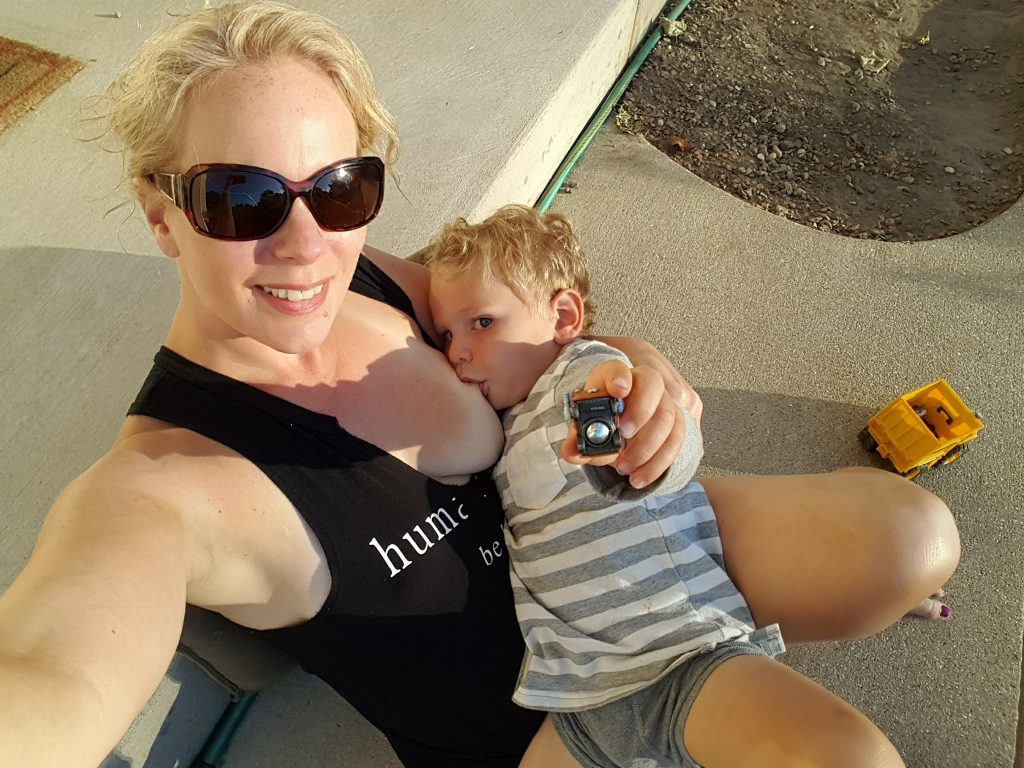Exley is 3 years and 4 months old. He recently started a phase of separation anxiety with me. He has started to get upset when I take a shower, run to the store or just simply leave the room for a second. I return to find out he had a major meltdown that I had left or I can hear him start to cry and yell for me.
I see this is as a normal developmental stage. He is getting older and realizing that he and I are not connected at the breast. He’s becoming more aware of the world around him and is learning that I am a major provider of safety and security for him. The idea of separation between us is scary for him.

I deal with this by limiting my time away from him and having someone else run an errand if I can. I breastfeed him on demand. I reassure him that I will return and delay activities if needed. I invite him to other rooms with me, even the shower if he wants. I know that he will move through this stage more smoothly if I honor his feelings. I take his feelings seriously and try to be as gentle as possible.
Some people would say that I need to toughen him up; that I need to take this opportunity to teach him independence. Some people would say that I “baby” him and that he will grow up to have issues. (He actually just walked into the room as I am typing this!) Some people would say that I am doing too much and need to not “feed into” these feelings.
I call bullsh*t. He is tiny human who relies on me for keeping him safe in this world. No one would suggest that we ignore an adult’s feelings, so why are we so quick to ignore a child’s feelings? Ignoring a child’s feelings and forcing “independence” leads to adults that have no insight into their own feelings, no way of dealing with stress and increase the likelihood that they will act out or resort to drugs and alcohol. I’ve seen it as a social worker over and over.
I will not conform to disgusting social norms that push children away too soon, that don’t honor the feelings of child and adults equally and that suggest I’m damaging my child when the opposite has been proven time and time again. I will answer his cries always, I will breastfeed him until he is done and I will hold him close every time he needs me to. I know that this will lead a sense of security later in life, more emotional stability and more meaningful relationships with others.
***Edited to add that self care is a priority. This does not suggest giving up self care. This suggests seeing our children’s behavior as developmental rather than a burden and helping them through rough times.












